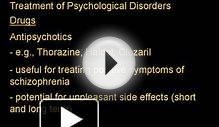
Eating disorders are complex conditions that can arise from a variety of potential causes. Factors that may contribute to eating disorders include both risk factors and correlates that may contribute to eating disorders.
Risk Factors
Risk factors predate the emergence of the eating pathology and predict the emergence of clinically significant eating disorders. Risk factors do not necessarily cause eating disorders, but they can be contributing factors in the development of an eating disorder. Some risk factors can predict the onset of any eating disorder whereas others are specific to the onset of a particular disorder.
Risk Factors for Any/All Eating Disorders: Body dissatisfaction, negative affect, thin-ideal internalization, dieting, family social support deficits.
Risk factors identified in a small number of studies include: Low self-esteem, maladaptive coping, parental separation, solitary eating, reading teen fashion magazines, social pressure for thinness, female sex, higher childhood BMI, social problems, social withdrawal, negative comments about eating, history of psychiatric disorders.
Risk Factors for Anorexia Nervosa: Low body mass index (BMI).
Risk factors identified in a small number of studies include: Childhood eating conflicts, struggles around meals, vaginal instrumental delivery, cephalohematoma, premature birth, low birth weight, delivery of multiple babies at once, perfectionism.
Risk Factors for Bulimia Nervosa: Thin-ideal internalization, social pressure for thinness, body dissatisfaction, dieting/fasting, negative affect.
Risk factors identified in a small number of studies include: Ineffectiveness (general feelings of inadequacy), alcohol use, low interoceptive awareness, psychiatric symptoms, eating too little during childhood, early puberty.
Risk Factors for Binge Eating Disorder: Social pressure for thinness.
Correlates that may contribute to eating disorders
Some factors have been shown to be connected to the development of an eating disorder. While these factors are not necessarily predictive, they may contribute to the onset of disordered eating behaviors.
Biological: Scientists are still researching possible biochemical or biological causes of eating disorders. In some individuals with eating disorders, certain chemicals in the brain that control hunger, appetite, and digestion have been found to be unbalanced. The exact meaning and implications of these imbalances remain under investigation. Eating disorders often run in families. Current research indicates that there are significant genetic contributions to eating disorders.
Psychological: Low self-esteem; feelings of inadequacy or lack of control in life; depression, anxiety, anger, stress or loneliness.
Social: Cultural pressures that glorify “thinness” or muscularity and place value on obtaining the “perfect body”; narrow definitions of beauty that include only women and men of specific body weights and shapes; cultural norms that value people on the basis of physical appearance and not inner qualities and strengths; stress related to racial, ethnic, size/weight-related or other forms of discrimination or prejudice.
Interpersonal: Troubled personal relationships; difficulty expressing emotions and feelings; history of being teased or ridiculed based on size or weight; history of physical or sexual abuse.
References
Jacobi, C. & Fittig, E. (2010). Psychosocial risk factors for eating disorders. In Agras, W.S. (Ed.), Oxford Handbook of Eating Disorders. Oxford University Press: N.Y.
Jacobi, C., Hayward, C., de Zwaan, M., Kraemer, H. & Agras, W.S. (2004). Coming to terms with risk factors for eating disorders: Application of risk terminology and suggestions for a general taxonomy. Psychological Bulletin, 130, 1, 19-65.
Stice, E. (2016). Interactive and Mediational Etiologic Models of Eating Disorder Onset: Evidence from Prospective Studies. Annual Review of Clinical Psychology.
Share this Post
INTERESTING PSYCHOLOGY VIDEO













